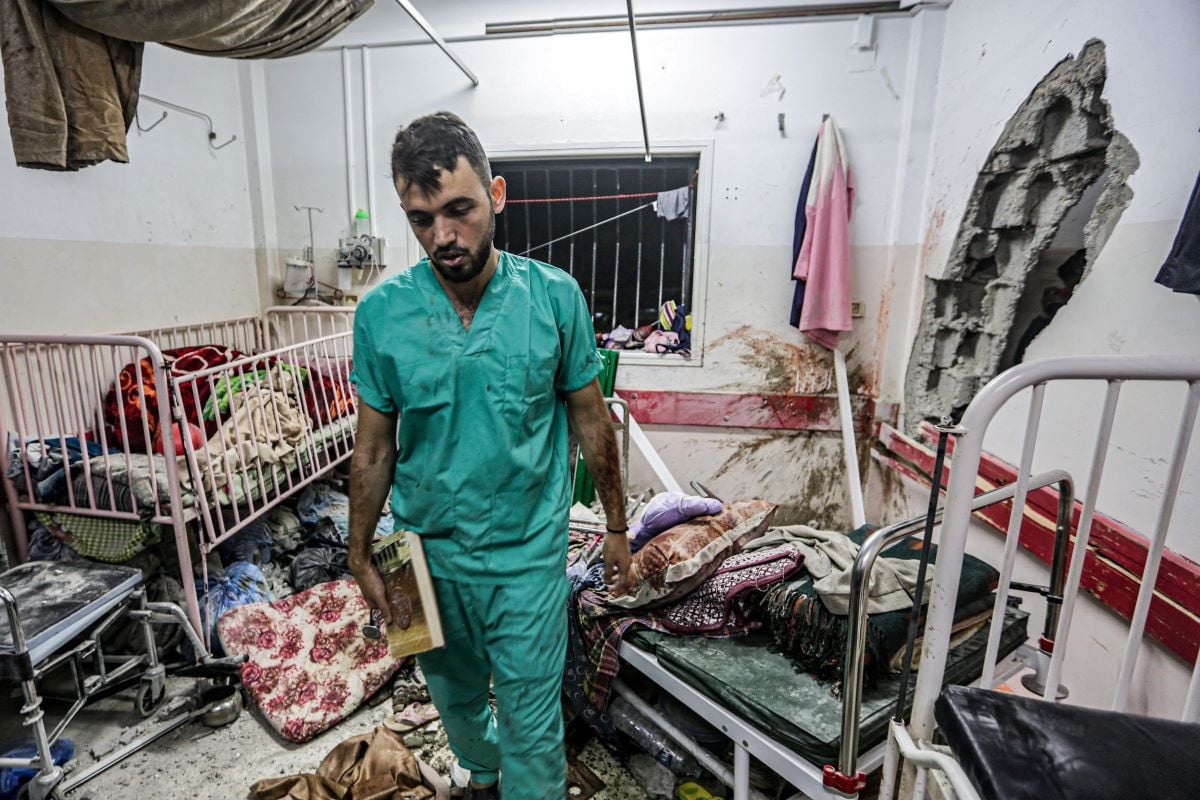Hamas said on Tuesday that he wanted to reach an agreement to end the war in Gaza on the basis of the plan of American president Donald Trump, but he still has a set of requirements, reporting that indirect negotiations with Israel in Egypt could be difficult and long.
Trump, however, was optimistic on Tuesday as for progress to a Gaza agreement and said that an American team had just left to participate in negotiations.
“I think there is a possibility that we can have peace in the Middle East beyond Gaza,” he told journalists in the oval office.
Fawzi Barhoum, senior Hamas, explained the position of Hamas on the occasion of the second anniversary of the attack by the Palestinian militant group against Israel which sparked the war in Gaza, and one day after the start of the indirect negotiations in Charm el-Cheikh.
Find out more: The highest diplomat of the Vatican condemns the “in progress massacre” in Gaza
These talks seem the most promising to date to end a war that killed tens of thousands of Palestinians and devastated Gaza since the attack on October 7, 2023 against Israel, during which 1,200 people were killed and 251 brought back to Gaza in hostages.
Officials of all stripes, however, called for caution regarding the prospects of a rapid agreement, while the Israelis remember the bloodiest day for the Jews since the Holocaust and the inhabitants of Gaza have expressed their hope of ending two years of war.
Hamas poses conditions
“The Delegation of the Movement (Hamas) participating in the current negotiations in Egypt strives to overcome all obstacles to achieve an agreement that responds to the aspirations of our people in Gaza,” said Barhoum in a television statement.
He declared that an agreement must guarantee the end of the war and a complete withdrawal from Israel from the Gaza Strip – of the conditions that Israel has never accepted. Israel hopes that Hamas disarm, which the group rejects.
Hamas wishes a permanent and global ceasefire, a complete withdrawal of Israeli forces and the start of reconstruction under the direction of a Palestinian “national technocratic body”, he said.
Stressing the future challenges, a group of Palestinian factions, including Hamas, promised a “resistance position by all means” and said that “no one has the right to sell the arms of the Palestinian people”.

Israeli Prime Minister Benjamin Netanyahu did not immediately comment on talks.
US officials suggested focusing on the stop of fighting and logistics for the release of hostages and Palestinian prisoners. But Qatar, one of the mediators, said that many details still remained to be settled, which indicates that an agreement was not imminent.
No ceasefire after two years of war
In the absence of a ceasefire, Israel continued its offensive in Gaza, thus increasing its international isolation. Opponents of Israel’s actions organized demonstrations in Sydney and in several European cities on the anniversary of the Hamas attack, despite the warnings of politicians that such demonstrations were likely to glorify violence.
Hopes of a breakthrough of civilians on both sides
On the occasion of this anniversary, some Israelis visited the hardest affected sites that day. Orit Baron was held on the site of the Nova music festival, in southern Israel, next to a photo of his daughter Yuval, who was killed with his fiancé Moshe Shuva.
“They were supposed to marry on February 14, Valentine’s Day,” said Baron. “They are buried next to each other because they have never been separated.”
The Israelis hope that the negotiations will lead to the release of the 48 hostages still detained in Gaza, 20 of which would be alive.
Read also: Gaza after two years
“It’s like an open wound, the hostages. I can’t believe that it’s been two years and that they are still not at home,” said Hilda Weisthal, 43.
In Gaza, Mohammed Dib, 49, hoped for the end of a conflict which caused a humanitarian disaster, caused many trips and killed more than 67,000 Palestinians, according to the health authorities of Gaza.
“We have lived in fear, horror, displacement and destruction for two years,” he said.
Residents of Khan Younis and the City of Gaza reported new Israeli strikes on Tuesday morning. The Israeli army said that activists had shot roquettes over Israel, triggering sirens at Kibbutz Netiv Haasara, and that Israeli troops continued to fight armed men inside Gaza.
Israel and Hamas have approved the general principles of Trump’s plan, according to which fighting stops, hostages are released and help would flock to Gaza. The plan benefits from Arab and Western support.
But an official involved in planning the ceasefire and a Palestinian source said that the 72-hour period set by Trump for the return of hostages could be unrealistic, insofar as the remains of dead hostages may have to be recovered.
Even if an agreement is concluded, questions remain as to who will govern Gaza and finance its reconstruction. Trump and Netanyahu have excluded any role from Hamas.



